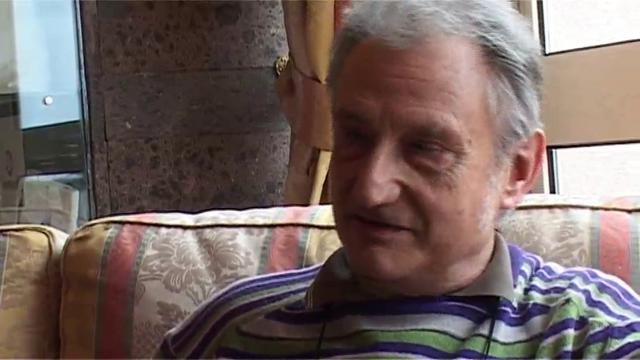Translated from Italian by Gordon Symons
Assagioli was “great and small” at the same time. He had the ability to express big and deep things with small language, in the sense of language simple and accessible to all. In fact, the truth is always something simple, and not a mental complication. Its size and depth were therefore in its simplicity.

He had a sense of right proportions. He was therefore not a charismatic “guru”, but was, first of all, a “man”, with his limits and his potential. He was basically a “scientist”, who examined the facts of experience with neutrality, and reasoned calmly about them, their meaning, their causes and effects, and above all, the problems that arose from the use of such facts and experiences, and man’s responsibility for them.
I was always struck by his serenity, his capacity for “presence” and at the same time, “detachment”; his orientation towards the positive, his ability to grasp the best in each person, his ability to see from above and see everything in a spiritual sense, even the most banal. It could be said that he answered from above the questions that came from below. He answered soulless questions from the soul (and this is also the right way to be a “therapist”). He did not judge, but understood, he was not disturbed by provocations, he always responded with love and gentleness, but also with strength and intelligence to aggression and criticism, often using humor. In short, he always spoke with the best part of himself, addressing the best part of others.
He was simple and deeply wise. His main qualities were therefore wisdom, serenity, detachment together with participation, the ability to view problems from above, and above all “joyfulness”. Everything was de-dramatised by joy, nothing was judged. There was understanding and acceptance for human imperfections and weaknesses. Everything was always carried upward, or at least its the totality. Assagioli once told me: “Psychosynthesis is completeness”. This means that everything has, can and must find its rightful place. And this applies not only to every psychic element and content in the psyche in general, but also to every single individual in humanity, and also to every living entity (including the apparently non-living inorganic entity) in the world and universe. Since everything is alive, everything is part of life, everything has a soul.
Another important feature of Assagioli was that of bringing everything back to direct experience. He did not like giving conceptual definitions, but he always tried to use experiential data. For example, when I asked him “What is the Self?”, He replied: “The Self is not a theoretical concept, but an existential experience of which we can have direct experience if we use the appropriate techniques for that experience. If we really want to know what the Self is, we have to go find it at home. “
I remember often asking him for advice, for his willingness to always be a “father” to me. Assagioli, after reading my autobiography, told me that I had the “freedom complex”. I was struck by the simplicity of his answer and solution to my problem: “You are free”. From this statement I then understood that freedom is a natural condition of man’s depth. I understood that there is no problem of freedom, but the real possibility of a direct, existential experience of freedom. It is the experience of “feeling free”, because in reality and in depth “we are already free”.
Being free does not mean fighting or destroying barriers, because whoever escapes from a prison can be imprisoned again (because he continues to carry the oppressed-oppressor construct). The escaped man is not a free man, but only a fugitive from a prison: the prison remains present in his consciousness. The truly free man is outside and beyond this combination: that is, a man who moves and acts as if there were no prisons (neither prisoners, nor jailers). The free man moves to another dimension of consciousness, in spite of barriers, unaware of them.
I remember another episode of my relationship with Assagioli. Once, as he climbed the stairs to return to his apartment on the first floor of Via San Domenico, he pointed to the front and top of the stairs at the top of the white wall and said to me: “Look up there! You can see anything. You are free to imagine anything you want “. This was for me a direct and immediate experience of a breath of freedom, the freedom of creativity and imagination.
Another important event I have witnessed is his death in Capolona. There was a “climate of sacredness” that night, during which I and the other students watched over him. At that moment Assagioli left us what he had consciously taught us, but also and above all the seeds he had placed in our unconscious and which would have to wait many years to germinate. Despite the sadness of that moment I felt the feeling that something profound had already happened and that each of us students carried within ourselves that potential, each representing in his own way, a “promise of continuity” of that project, of that “blossoming”, of which Assagioli had been an example and a witness, “both the land and the gardener”. Today perhaps, the times are starting to mature …
Florence, 21/03/1999

Leave a Reply